If you are in Bulgaria during the winter and want to experience something different, then the famous Bulgarian tradition Surva is for you. One of the most popular annual cultural events in Bulgaria, with fans from all over the world, is the International Festival of the Masquerade Games Surva in Pernik. It is one of Bulgaria’s most exciting winter festivals, where you can find the famous Kukers groups. Below you will learn more about this unique Bulgarian tradition Surva and its kukers, and the International Surva festival that represents them.
Note: Do you want to learn more about Bulgaria and the best things to visit and do in my beautiful country? Don’t miss this post, and make your trip to Bulgaria unforgettable.
Quick info about the Bulgarian tradition – Surva and Kukers
My homeland Bulgaria is a magical country that impresses everybody with its beautiful nature, centuries-old traditions, and rich history. If you are here, the unique traditional crafts, songs, dances, and costumes are the best way to connect with local folklore and traditions.
Where did the Surva custom and the Kukers come from
The tradition of Surva and Kukers is one of the oldest customs in our lands, dating back 6,000 years, often linked to the Greco-Thracian cult of Dionysus. In Bulgaria, the custom is most typical in Southeast and Southwest Bulgaria, around New Year – during the Dirty Days /from Christmas to New Year’s Day/, during Cheese Sunday and Todor’s Sunday /the last week before and the first of Easter fasts/ – with the biggest celebrations in the middle and the end of January.
What does Kuker mean
The word “kukeri” is of Thracian origin and means “tall, masked people.” People also call them survakari, kooks, babugers, and pesyaks. The custom symbolizes the leaving of winter and the return of new life with the coming of warm days, the new agricultural year, and the fields plowing during Sirni Zagovezni /Cheese Sunday/.
Who can participate as a Kuker
Young and older people dress in folk costumes, put on masks, and start to chase away evil spirits. Earlier, only men, most of them bachelors, performed the custom of the kukers. Then, every group had a leader who was the only married man. Today, women and children also participate in the Kukers ritual. Whole families collect materials for the masks and work on costumes during the year. Adults teach young people how to make these unique masks and costumes, often passed down from generation to generation.
The suits of the Kukers
Traditional kukers costumes, known since the 19th century, are relatively modest. Often, kukers only painted their faces. Later, people began using huge boards with textiles, leather decorations, mirrors, and feathers.
They dress in a mix of women’s and men’s clothes. For example, in Eastern Bulgaria, kukers wear wedding clothes. In other parts of the country, they wear clothes made of goat, sheep, or deer skins.
Most participants in Surva wear tall creepy masks/hats (sometimes over 2 m in height and 1 m in width), usually wooden and fur, carved with the faces of haunting beasts. Kukers also have heavy bells hanging around their waists. They bang them with sticks or jiggle, so they make a loud noise for their ritual dancing. The bells should scare away not only evil spirits but the winter and the cold and bring spring and new life, symbolizing fertility and prosperity.
Kukers masks – symbols and meaning
Most of the kukers masks are of wooden construction. Multi-colored threads are stuck on them, with pieces of textiles, mirrors, shiny parts, and other elements. They have to make it uglier and look as scary as possible to scare away evil. Kukers masks are essential in the Surva custom and usually represent animals such as goats, bulls, or rams. Some masks have two faces characterizing good and evil. The colors of the decorations (red, black, and white) are also essential for the symbolism. If you touch a kukers mask, it is considered good luck and offers protection for the coming year.
Kukers and the Surva ritual itself
Surva has been celebrated in villages for centuries, and each has its unique kukers’ masks, dance, and music. People dress up and visit houses, performing their protective rituals. You can see two nuances of the plays. First, the performance of the wedding ritual is mainly characteristic of the Survakars, in contrast to the Kukers, for whom ritual plowing is typical.
Kukers gather in the center of the village, from where they visit all homes with wishes for health, fertility, and well-being. In each house, they perform various comic scenes, collecting gifts, wine, and food from the hosts. After that, kukers return to the center of the village, where they play their ancient ritual:
The kukers run, jingling their bells as loud as possible. It is believed that the louder they are, the more certain they are to drive away evil spirits.
The Bride is waiting for the kukers at home, seemingly organizing the house. Meanwhile, the boy ritually “fertilizes” the Bride so that a new beginning can be born.
Two kukers are harnessed to the plow, and a plowman drives them. After them, the King sows the seed, and the group follows him, jumping and brandishing swords. The King blesses for fertility. One of the kukers ritually kills him, and the others gather over him and “resurrect” him. The bride “gives birth” to a child, the agricultural year can begin, and the festivity continues with folk dances. Finally, everyone gathers for a rich feast of food donated by people.
People believe that kukers bring luck, fertility, and prosperity. What do you think?
Surva – the International Festival of Masquerade Games
Kukers games are spread in Bulgaria and some other countries – Romania, Serbia, Greece, Macedonia, Moldova, Slovenia, and Croatia. But where can you experience all the cultural differences in this Surva tradition and its Kukers? Visit the International Festival of Masquerade Games Surva in Pernik (my hometown situated 30km from the capital of Bulgaria – Sofia). It is the most famous festival, with guests from all over the world. They come to experience the magic of Surva, see and touch the kukers’ masks, and make their wishes for good health and good luck.
Note: In 2015, UNESCO inscribed this tradition as an Intangible Cultural Heritage.
The annual International Festival of the Masquerade Games Surva is held on the last weekend of January (this year, 27 – 29.01.2023). It features kukers from Bulgaria, the Balkans, and other countries (in 2023, there will be more than 130 groups and around 10 000 participants.)
The activities during the Surva festival include workshops for children, games, and competitions for making masks and clothes. There are also presentations of traditional Bulgarian cuisine, typical for each region the participants come from. And, of course, the Kukers competition festival parades.
You can find the program of the Surva festival on the official site.
What do you know about Surva and the Kukers? Have you ever been to Surva Festival?
Share with me in the comments below.
Inspired? Pin it for later!
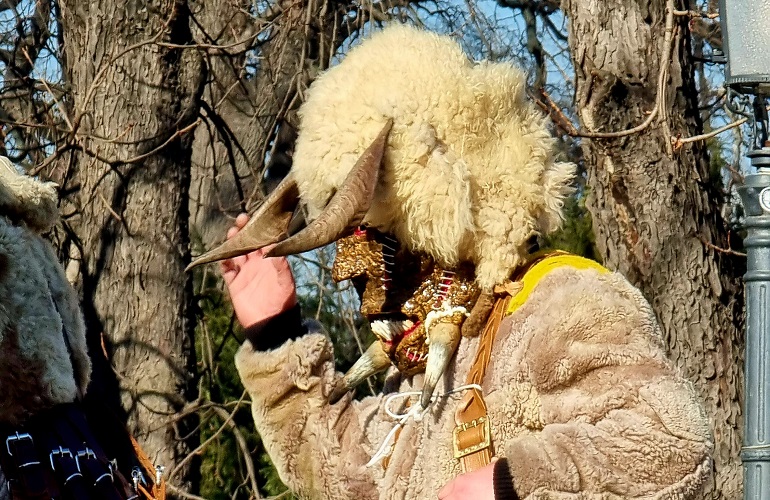
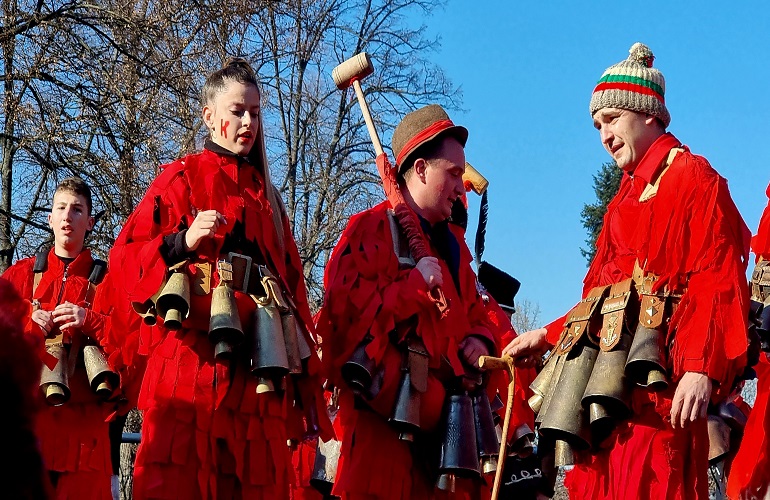
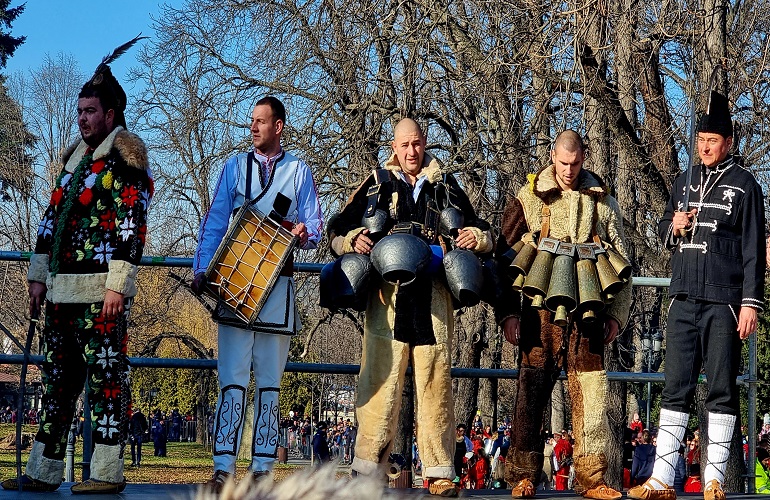
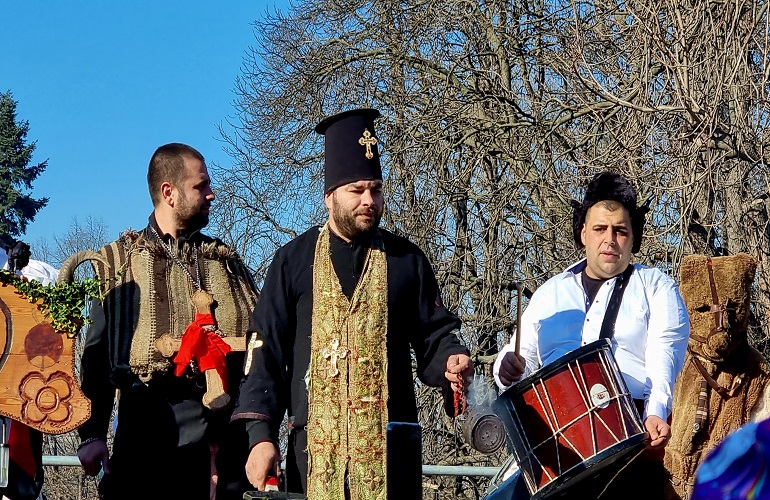
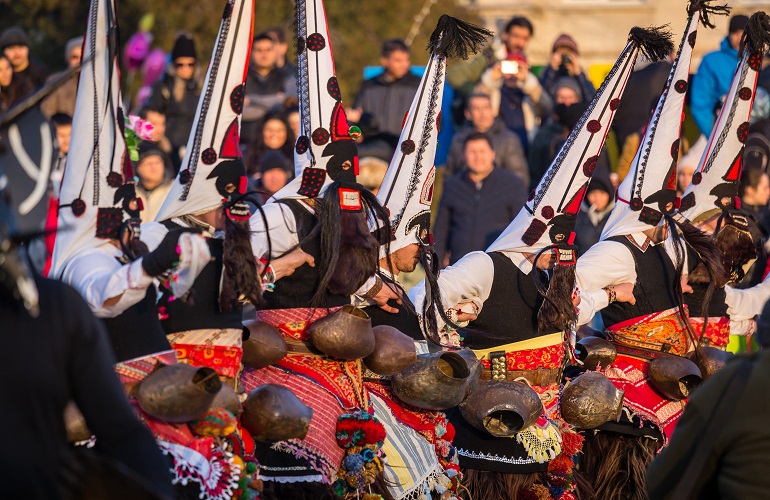
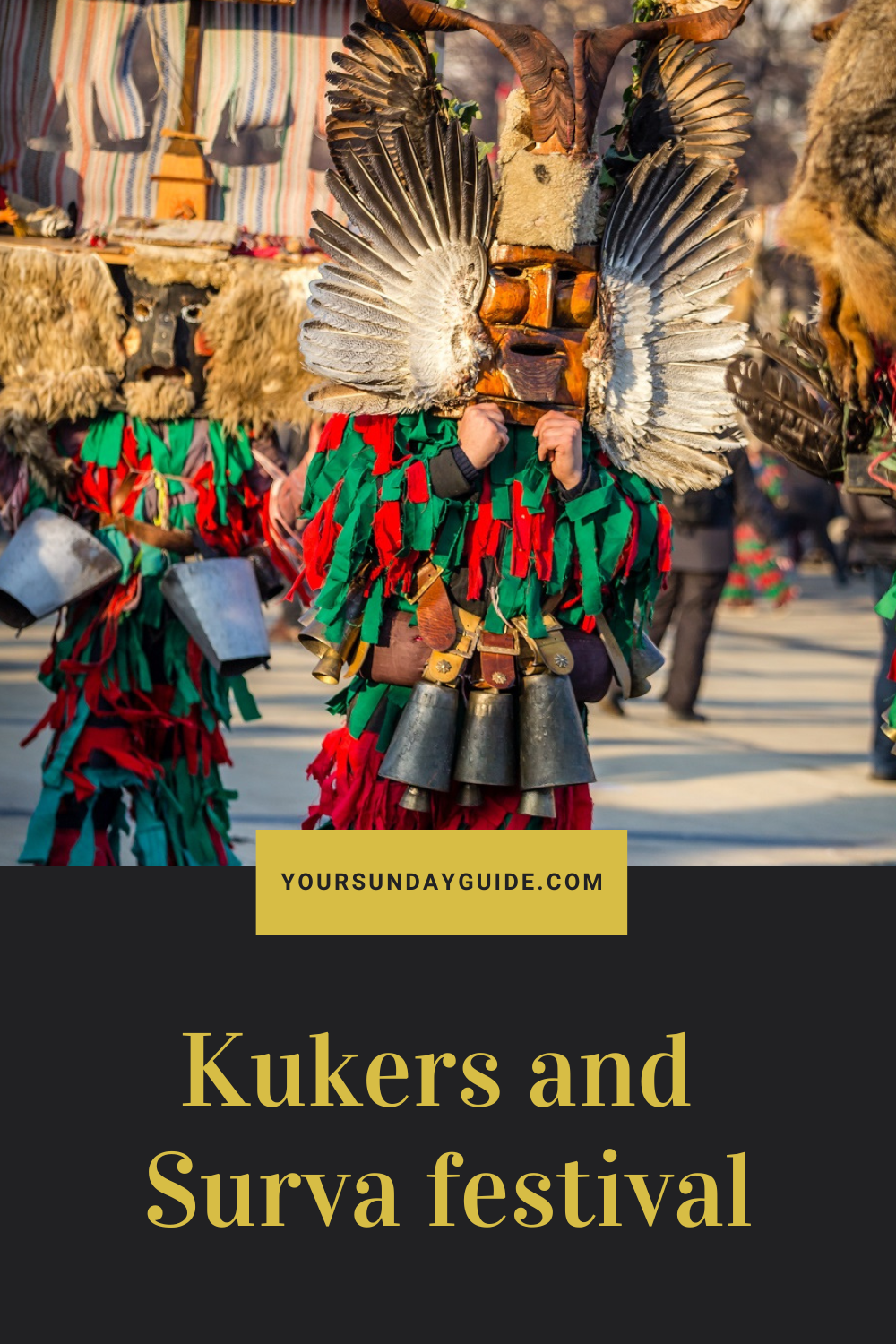
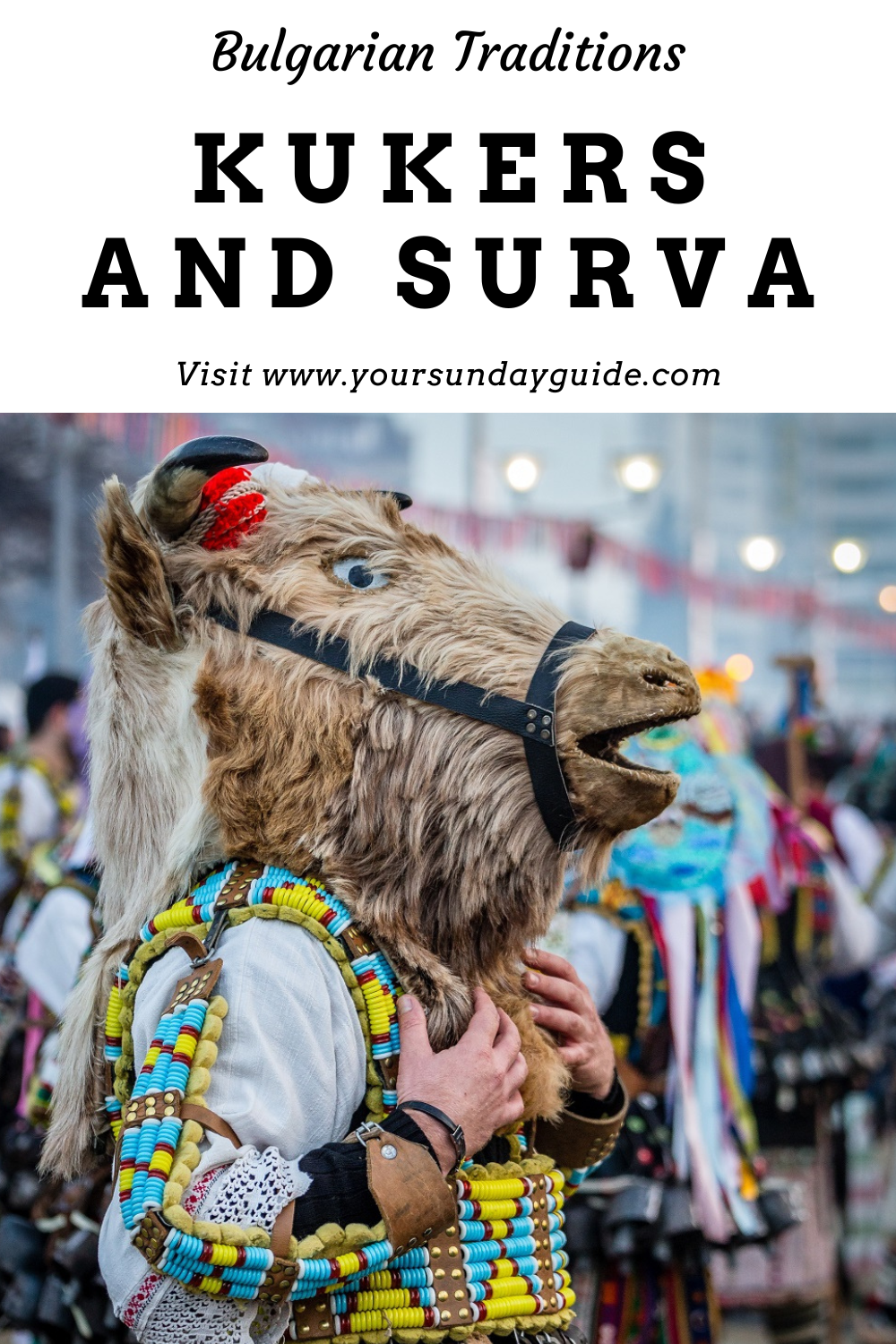
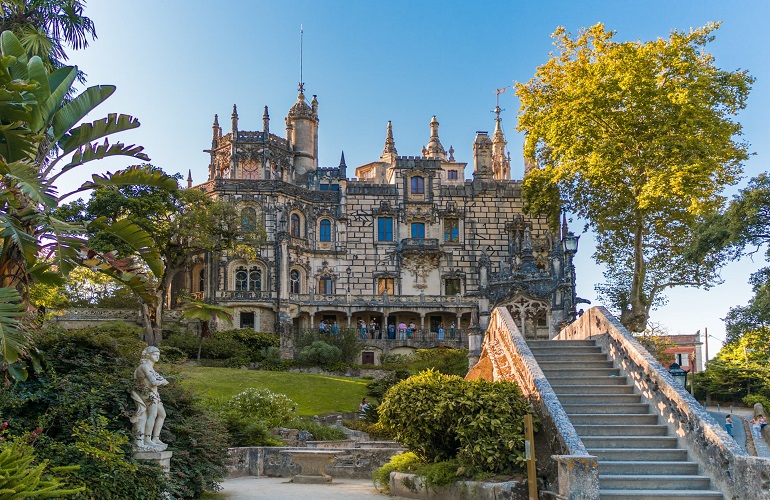
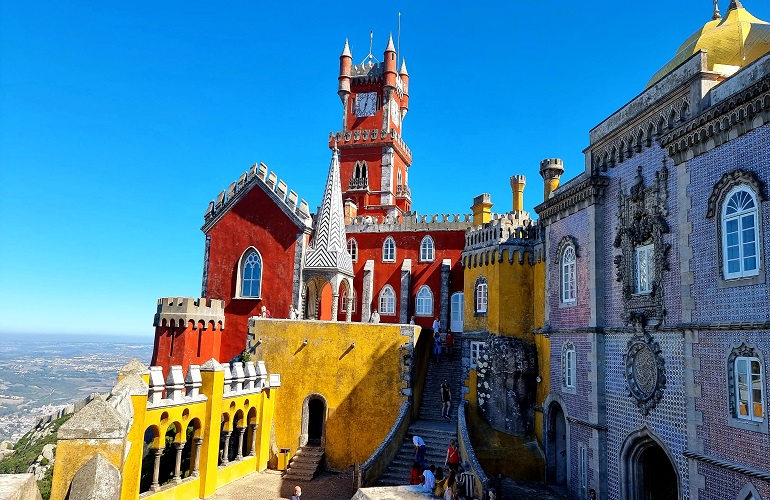
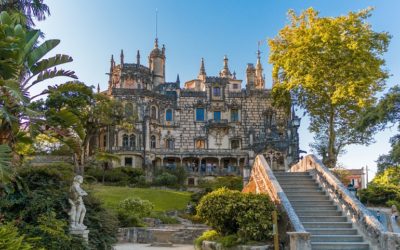
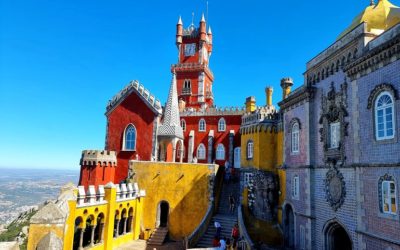
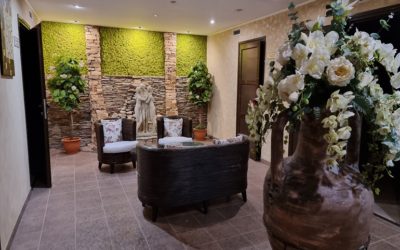
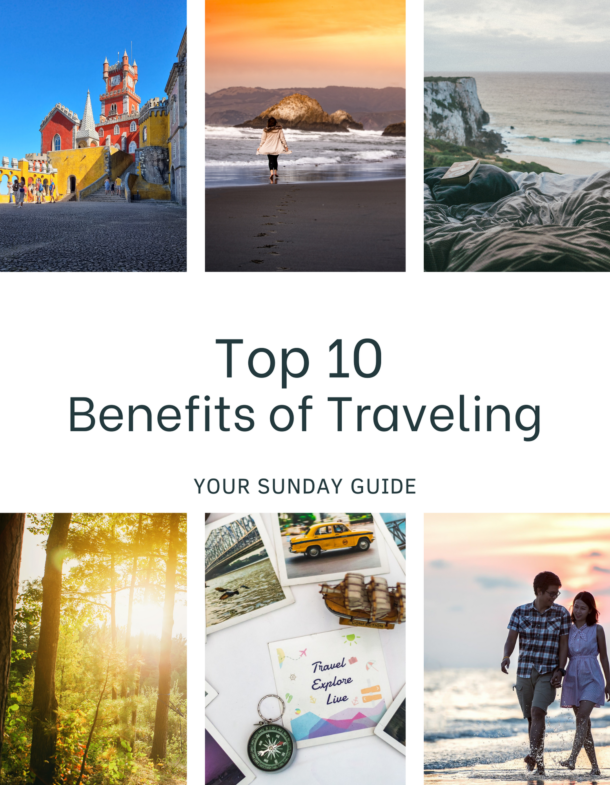
0 Comments